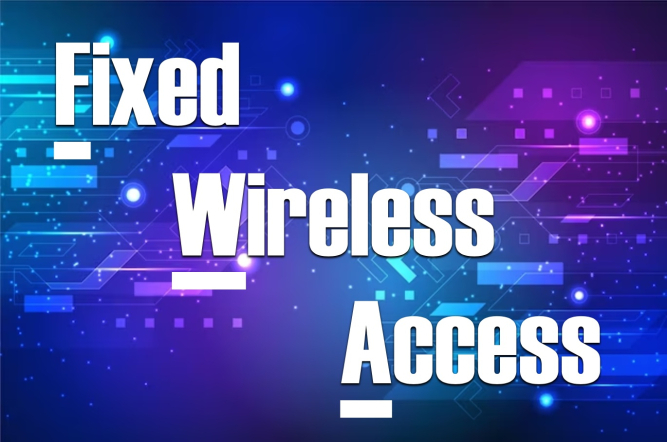
In the ever-evolving landscape of communication technology, Fixed Wireless Access (FWA) has emerged as a game-changing solution, providing reliable internet connectivity to homes and businesses. FWA is offered by major telecom giants such as T-Mobile, Verizon, and AT&T, allowing customers to enjoy high-speed internet without traditional wired connections. While FWA presents an exciting opportunity, it’s important to note that its availability is currently limited to select areas.
What is Fixed Wireless Access (FWA)?
Fixed Wireless Access (FWA) is a broadband internet service that delivers high-speed connectivity using wireless technology, eliminating the need for physical cables and infrastructure. FWA operates by establishing a wireless connection between a customer’s location and a nearby cell tower. This technology allows users to access the internet from a fixed location, whether it’s a residential home or a business establishment.
Limited Availability and Slot Constraints
At present, Fixed Wireless Access is only available in specific geographic areas where the telecom companies have deployed the necessary infrastructure. Unlike traditional wired broadband, FWA service coverage is dependent on the proximity of a cell tower. Due to this limitation, not all regions have access to FWA, making it essential for potential customers to check whether their area is eligible for this service.
Moreover, FWA service has a unique constraint that sets it apart from traditional internet offerings: the number of available slots per cell tower. Telecom companies cannot oversell FWA connections beyond the capacity of a given tower. This ensures that users connected to the tower can experience more consistent and reliable speeds without experiencing significant slowdowns during peak usage times.
Fixed Location Verification
Unlike mobile broadband, Fixed Wireless Access requires users to have a verified fixed location. This means that customers cannot use FWA for on-the-go connectivity like they would with mobile data plans. The verification process is crucial for maintaining network stability and ensuring that the service is provided to the intended location.
Variable Speeds Depend on Time of Day and Signal Quality
Even with limited access, the speed of Fixed Wireless Access connections can vary based on factors such as time of day and signal quality. During peak usage hours, such as evenings when many users are online, the network may experience increased congestion, leading to potential slowdowns in internet speed. Additionally, the quality of the signal between the customer’s location and the cell tower can impact the overall speed and stability of the connection. Using an external antenna can typically help in cases where the signal and/or signal quality may be too weak inside.
FWA Highlights
FWA has many benefits for home and business owners. If you have availability in your area, it’s best to take advantage of the service ASAP before all slots are taken. If you’re on the fence about it, take into consideration the following highlights that showcase FWA’s potential:
- Rural and Underserved Areas: FWA has the potential to bridge the digital divide by providing high-speed internet access to remote and underserved areas where laying traditional wired infrastructure is cost-prohibitive or logistically challenging. This can empower rural communities with improved educational, economic, and social opportunities.
- Quick Deployment: FWA offers a faster deployment timeline compared to laying physical cables. This agility is particularly valuable in disaster-stricken areas where rapid connectivity is crucial for emergency response, relief efforts, and communication restoration.
- Cost-Effective Solution: For both service providers and customers, FWA can be a cost-effective alternative to traditional wired broadband solutions. It eliminates the need for extensive underground cabling and associated infrastructure costs.
- Reduced Environmental Impact: The absence of extensive physical infrastructure reduces the environmental impact associated with laying cables and digging trenches, contributing to a more sustainable approach to connectivity expansion.
- Business Connectivity: FWA offers a reliable and high-speed internet option for small businesses and startups, enabling them to establish and maintain their online presence without the limitations of traditional wired connections.
- Future-Proofing: As technology advances, FWA networks can be upgraded with minimal disruption, ensuring that users can benefit from evolving connectivity standards without major infrastructure overhauls.
- Complementary Technology: FWA can complement existing wired and mobile networks, providing an additional layer of redundancy and network resilience, especially in areas prone to service disruptions.
Paving the Way for the Future of Fixed Connectivity
Fixed Wireless Access offered by telecom giants like T-Mobile, Verizon, and AT&T represents a promising advancement in internet connectivity technology. By eliminating the need for physical cables and infrastructure, FWA brings the convenience of high-speed internet to more homes and businesses. However, its current limited availability and dependence on cell tower capacity mean that FWA is not yet accessible to everyone. As technology continues to evolve, it’s likely that FWA services will expand to cover more areas and improve the overall online experience for users in the future.

